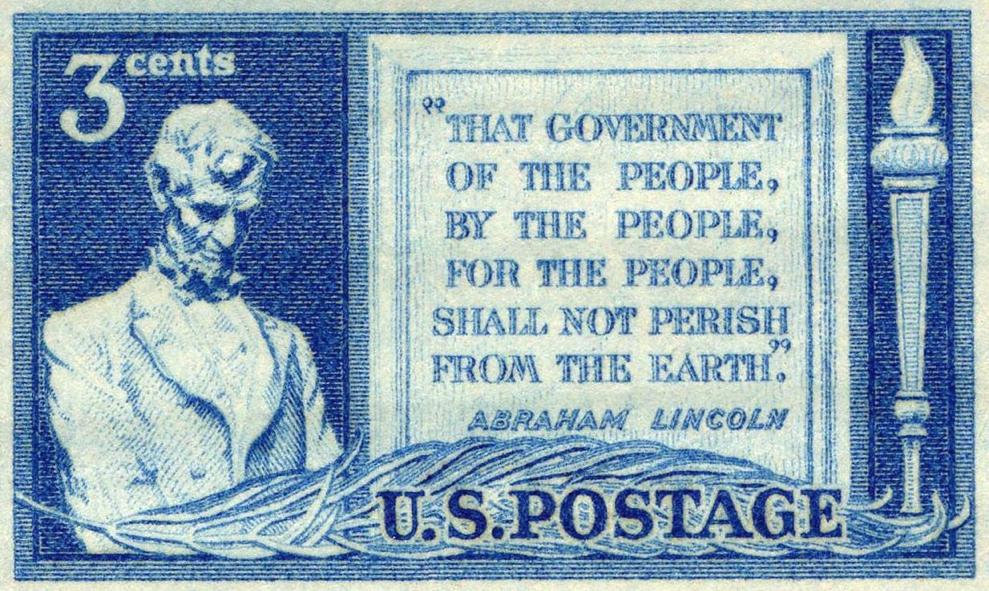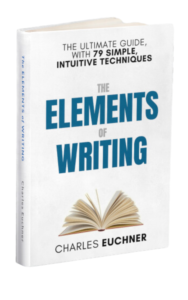On this date in 1863, Abraham Lincoln delivered the Gettysburg Address, the greatest oration in American history.
 In 262 words, Lincoln gave fresh meaning to the Civil War and redefined America. He honored the nation’s founders and the soldiers who fought on both sides of the Civil War. He looked forward to the day when the war would end and America could return to its true mission: expanding liberty and equality for a growing nation.
In 262 words, Lincoln gave fresh meaning to the Civil War and redefined America. He honored the nation’s founders and the soldiers who fought on both sides of the Civil War. He looked forward to the day when the war would end and America could return to its true mission: expanding liberty and equality for a growing nation.
 The Gettysburg Address has become a model of rhetoric for its brevity, generosity, and vision of redemption. Lincoln understood that rhetoric must speak to both mind and heart. He understood that you need to say as much as necessary, but no more. He also understood that moments of ceremony and commemoration deserve more elevated prose than, say, a memo.
The Gettysburg Address has become a model of rhetoric for its brevity, generosity, and vision of redemption. Lincoln understood that rhetoric must speak to both mind and heart. He understood that you need to say as much as necessary, but no more. He also understood that moments of ceremony and commemoration deserve more elevated prose than, say, a memo.
Back in the 1950s, a journalist named Oliver Jensen used the address to poke fun at President Dwight Eisenhower’s more prosaic manner of speaking.
To honor Lincoln, we present his speech in its entirety, along with the Powell spoof and a simple, just-the-facts version that we’re glad Lincoln did not give.
Lincoln’s Version
Fourscore and seven years ago our fathers brought forth on this continent a new nation, conceived in liberty, and dedicated to the proposition that all men are created equal. Now we are engaged in a great civil war, testing whether that nation, or any nation so conceived and so dedicated, can long endure. We are met on a great battlefield of that war. We have come to dedicate a portion of that field as a final resting-place for those who here gave their lives that this nation might live. It is altogether fitting and proper that we should do this. But, in a larger sense, we cannot dedicate…we cannot consecrate…we cannot hallow…this ground. The brave men, living and dead, who struggled here, have consecrated it far above our poor power to add or detract. The world will little note nor long remember what we say here, but it can never forget what they did here. It is for us, the living, rather, to be dedicated here to the unfinished work which they who fought here have thus far so nobly advanced. It is rather for us to be here dedicated to the great task remaining before us…that from these honored dead we take increased devotion to that cause for which they gave the last full measure of devotion; that we here highly resolve that these dead shall not have died in vain; that this nation, under God, shall have a new birth of freedom; and that government of the people, by the people, for the people, shall not perish from the earth.
The Eisenhower Spoof
I haven’t checked these figures but 87 years ago, I think it was, a number of individuals organized a governmental set-up here in this country, I believe it covered certain Eastern areas, with this idea they were following up based on a sort of national independence arrangement and the program that every individual is just as good as every other individual. Well, now, of course, we are dealing with this big difference of opinion, civil disturbance you might say, although I don’t like to appear to take sides or name any individuals, and the point is naturally to check up, by actual experience in the field, to see whether any governmental set-up with a basis like the one I was mentioning has any validity and find out whether that dedication by those early individuals will pay off in lasting values and things of that kind. . . . But if you look at the over-all picture of this, we can’t pay any tribute – we can’t sanctify this area, you might say – we can’t hallow according to whatever individual creeds or faiths or sort of religious outlooks are involved like I said about this particular area. It was those individuals themselves, including the enlisted men, very brave individuals, who have given the religious character to the area. The way I see it, the rest of the world will not remember any statements issued here but it will never forget how these men put their shoulders to the wheel and carried this idea down the fairway. Now frankly, our job, the living individuals’ job here is to pick up the burden and sink the putt they made these big efforts here for. It is our job to get on with the assignment – and from these deceased fine individuals to take extra inspiration, you could call it, for the same theories about the set-up for which they made such a big contribution. We have to make up our minds right here and now, as I see it, that they didn’t put out all that blood, perspiration and – well – that they didn’t just make a dry run here, and that all of us here, under God, that is, the God of our choice, shall beef up this idea about freedom and liberty and those kind of arrangements, and that government of all individuals, by all individuals and for the individuals, shall not pass out of the world-picture.
A Vanilla Version
Eight-seven years ago, rebels declared the start of a new nation. The mission: foster liberty and equality. A civil war now threatens that nation (and others like it). We’re here to honor the dead, which is appropriate. But are we good enough? No! The fighters already did it. Nobody will remember what we say; everyone will remember what they did. Now we have to win the war, so it wasn’t just a big waste. Let’s hope the nation can get a fresh start creating a more democratic system.


